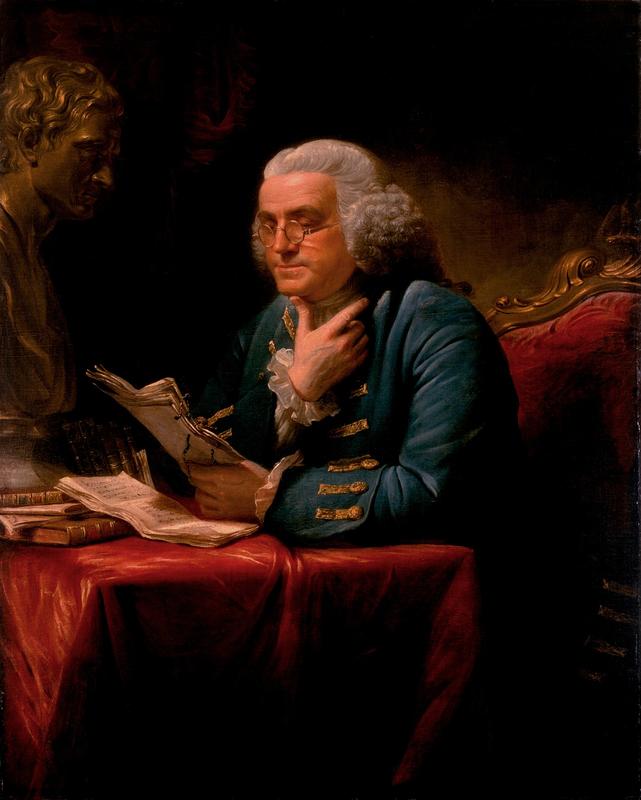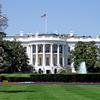More about Benjamin Franklin

Contributor
Currently, this incredibly flattering portrait of Benjamin Franklin hangs in the White House along with images such as the Peace Makers of 1868 and The Avenue in the Rain. While it is not the most famous painting of the man, an honor held by Joseph Duplessis’s painting, it is the most notable painting done by the artist David Martin. This is of note because David was a Scottish painter, and this work was in fact done in 1767 while ol’ Benji here was living in London.
The reason why this painting was created is actually rather intriguing. This painting was commissioned as a thank-you gift for a legal judgment by one Robert Alexander. The young Scottish landowner was in the midst of a legal dispute over a piece of property. Instead of going to court, he and the other man went to Biggie Franks here for legal advice. Franklin in turn advised arbitration, with himself as the arbitrator. Both parties agreed to this, and then Benjamin ruled in favor of Robert. In return, Robert commissioned the painting. This may not seem that spectacular, but it is rather a lot of work for a selfie.
Other being a nice, full decade before the signing of the Declaration of Independence, 1767 was also a big year in the colonial timeline. This was the year they introduced the Townshend Acts, which was a major series of tax laws that the British Empire imposed upon the colonies. The idea was to tax items that the colonies could not produce themselves, in particular manufactured goods and imports like tea. One could definitely argue that this wasn’t the most unfair legislation in the world, but the Townshend Act was passed entirely without colony approval, which obviously didn't go over well with the colonists. And it's not like Parliament was entirely without access to a relatively popular representative from the colonies.
Benjamin Franklin, who again was living in London at the time, tried to explain to Parliament how this would just prompt the colonists to attempt to manufacture their own goods. So England came with the Tea Act, making it so that only the East India Trading Company would be allowed to sell tea in the colonies, and thus preventing the colonists from circumventing the extra expense. It was things like this, and the colonists' retaliation, that would gradually increase pressure in the colonies. Finally the situation boiled over, resulting in the Revolutionary War, which in turn would result in the creation of one of the greatest theatrical performances in history, Hamilton the musical. Also somewhere in between the United States was formed, which is okay, if you're into that sort of thing.
Sources
- History.com Editors “Townshend Acts” History.com 01/15/2020 https://www.history.com/topics/american-revolution/townshend-acts
- Website Contributor “David Martin” National Gallery of Scotland viewed on 08/13/2020 https://www.nationalgalleries.org/art-and-artists/artists/david-martin
- Web Contributor “The Boston Tea Party” Khan Academy viewed on 08/13/2020 https://www.khanacademy.org/humanities/us-history/road-to-revolution/th…











